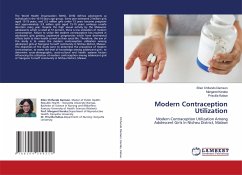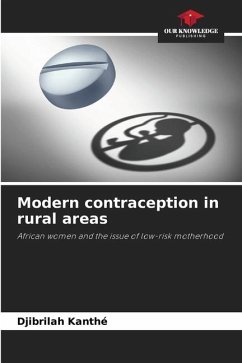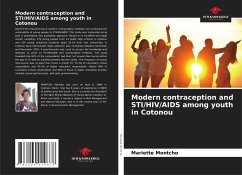
Modern Contraception Utilization
Modern Contraception Utilization Among Adolescent Girls In Ntcheu District, Malawi
Versandkostenfrei!
Versandfertig in 6-10 Tagen
36,99 €
inkl. MwSt.

PAYBACK Punkte
18 °P sammeln!
The World Health Organization (WHO, 2018) defines adolescents as individuals in the 10-19 years age group. Every year estimated 21million girls aged 15-19 years, and 2.5 million girls under 15 years become pregnant and approximately 3.9 million girls aged 15-19 years undergo unsafe abortion every year. Despite the high sexual activity by the Malawian adolescents which is rated at 51 percent, there is low utilization of modern contraception. Failure to utilize the modern contraception has resulted in adolescent girls getting unplanned pregnancies which have detrimental effects both to their hea...
The World Health Organization (WHO, 2018) defines adolescents as individuals in the 10-19 years age group. Every year estimated 21million girls aged 15-19 years, and 2.5 million girls under 15 years become pregnant and approximately 3.9 million girls aged 15-19 years undergo unsafe abortion every year. Despite the high sexual activity by the Malawian adolescents which is rated at 51 percent, there is low utilization of modern contraception. Failure to utilize the modern contraception has resulted in adolescent girls getting unplanned pregnancies which have detrimental effects both to their health as well as their social life. Therefore, the aim of this study is to assess the modern contraception utilization among adolescent girls at Tsangano Turnoff community in Ntcheu District, Malawi. The objectives of the study were to determine the prevalence of modern contraception, to assess the level of knowledge among adolescent girls', to determine socio-demographic, socio-cultural and health systems factors influencing the utilization of modern contraception among adolescent girls at Tsangano Turnoff community in Ntcheu District, Malawi.












